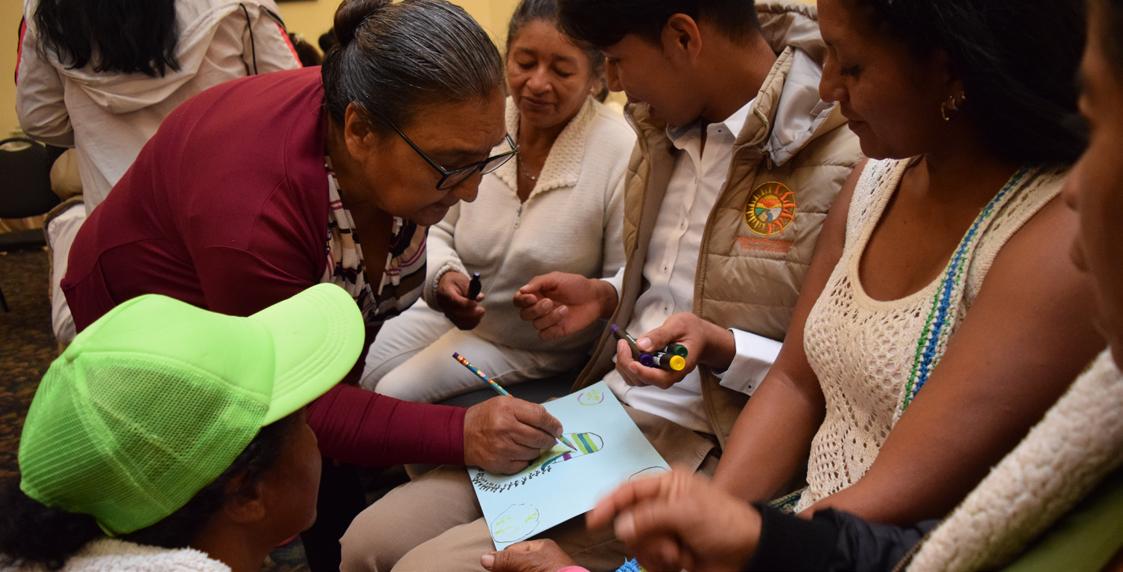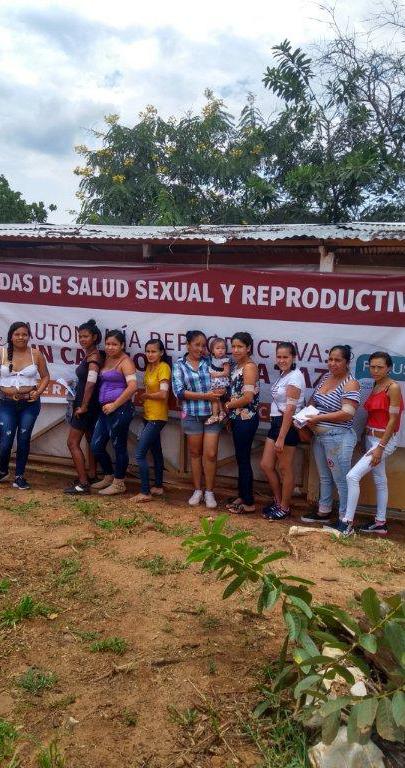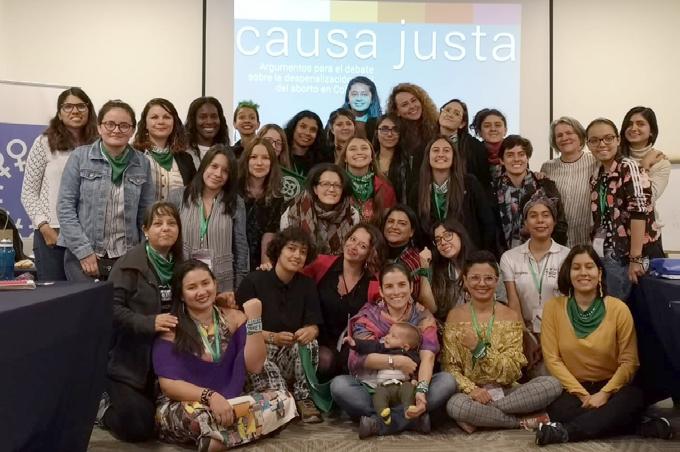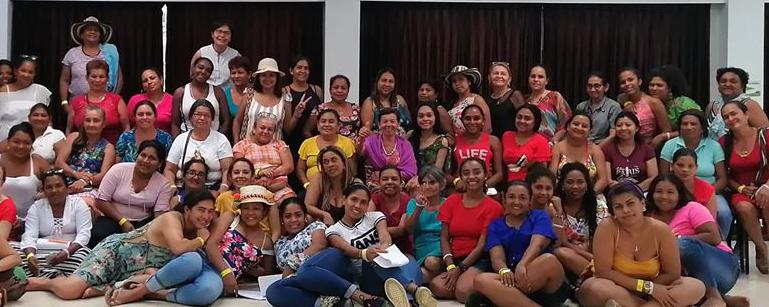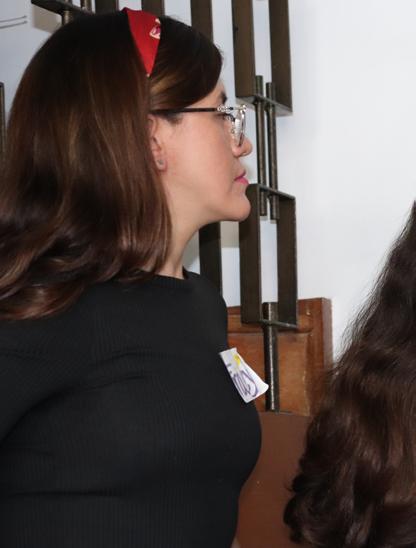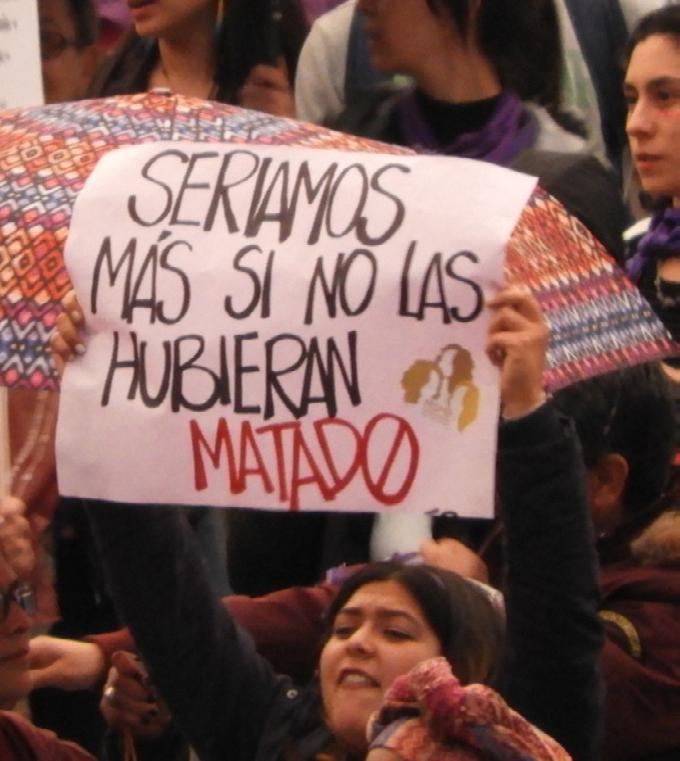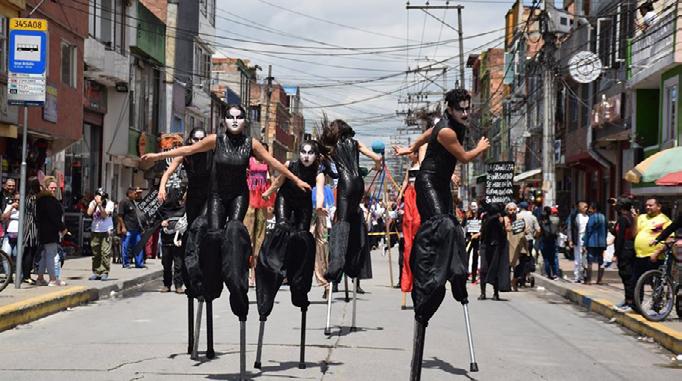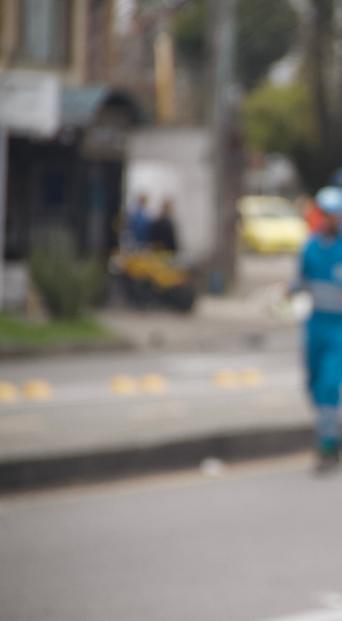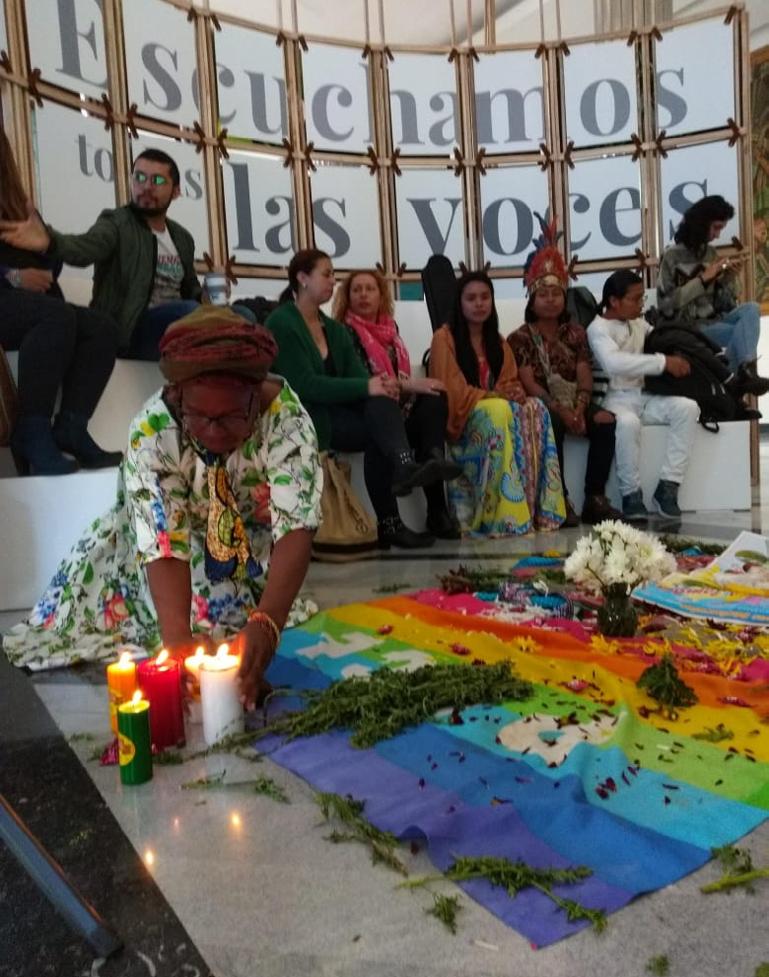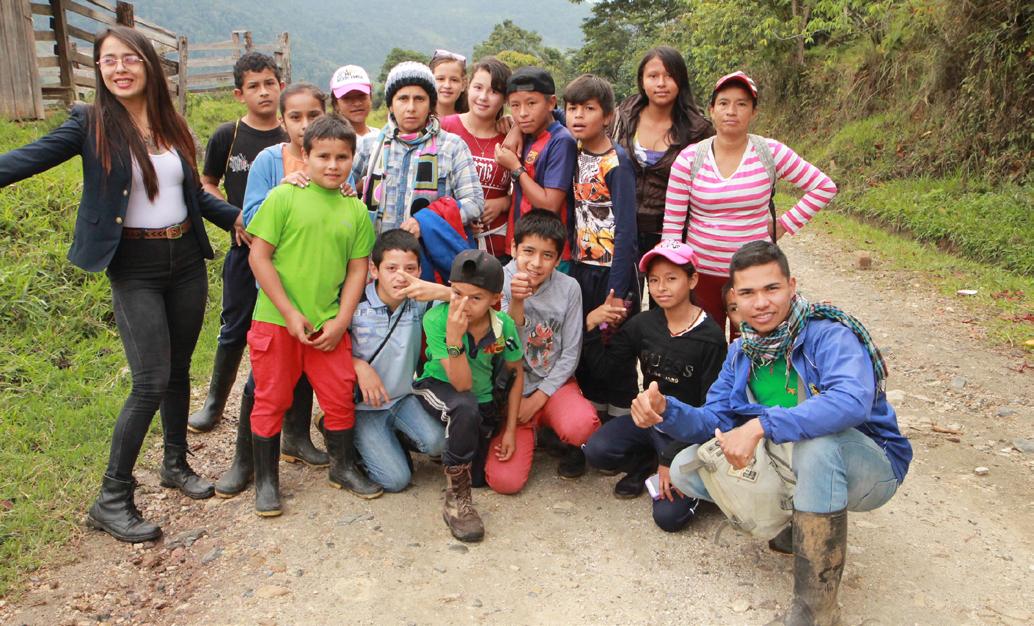“THEY AREN’T VICTIMS OF SEXUAL VIOLENCE, THEY ARE SURVIVORS.” Olga Romero is an example of struggle, resistance, and peacebuilding amid the tragedy of sexual violence.
TEXT: MÓNICA LOZANO. Corporación Humanas Communications Staff.
I survived, but many have died,” says Olga Romero, legal representative of Supérate, la Asociación de Mujeres Renovadoras de Vida (Overcome! Association of Women Renovators of Life) from the department of Sucre. Hailing from Montería, Olga is a survivor of sexual violence, but more than that she is a teacher, leader, and peacebuilder. She, together with 55 indigenous, black, mixed-race, young, and adult women met on 14 November in Tolú to reiterate that peace is possible if, and only if, women, their rights, struggles, and resistance are taken into account. This was their message during the closing of the project Ágora de Mujeres para una Colombia en Paz (Women’s Agora for a Colombia at Peace), implemented by Corporación Humanas, and in thanks to the support of FOKUS in Colombia, which since 2011 has supported
“
* Expresión de Marianne Holden en este encuentro.
6
some Humanas projects specifically related to its work on peacebuilding and women’s access to sexual and reproductive health. “We have worked with so many women, it has been wonderful. Also, talking about the Peace Agreement has shown us that sexual violence didn’t only happen here, but also in other countries,” said Olga, and she added that, in spite of these women’s challenges, “they have been able to move forward confronting all kinds of actors. That gives us strength and motivates us to work for those of us who survived.” It is amid these same struggles that Supérate, la Asociación de Mujeres Renovadoras de Vida arose in the department of Sucre. In 2014 several victims of sexual violence from the Montes de Maria region met while filing complaints and processing paperwork with the Victims’ Unit and the Attorney General’s Office. “One said to the other: ‘hey, this happened to you, dare to make a statement.’ And that is how we became friends, seeking services together,” explains Romero.
OLGA’S STORY
Olga comes from the rural community of Macayepo, in Carmen de Bolívar, an area that, during the roughest years of Colombia’s war, was disputed by the
PHOTO: Corporación Humanas.
{ Resistance }
FARC guerrillas and paramilitaries. In fact, the victim’s family was displaced due to threats from the guerrillas. “I had a relationship with a military man in Sincelejo, and two women had already been murdered in my town, one because she had a romantic relationship with a military man, and another because she did laundry for the military when they came through. Nevertheless, in ‘95 I accepted a job and decided to return,” she states. Four years after she returned to Macayepo, the guerrillas found out about her relationship and that is when the pressure began. At the end of 1999, one morning at a guerrilla checkpoint when Olga was traveling to town, she, two other women, and a man were taken off the bus they were traveling on. “The guy was led one way, one woman was killed, and they took me in another direction. I told them that if they were going to kill me, to do it there, but instead they told me that the commander needed to speak with me.” Olga began a nearly two-hour journey. Her sandals broke walking across the rocks, thorns, and streams she had to cross. “That pain in my feet has never gone away. I suffered with each step that I took. I thought they were going to kill me.”

